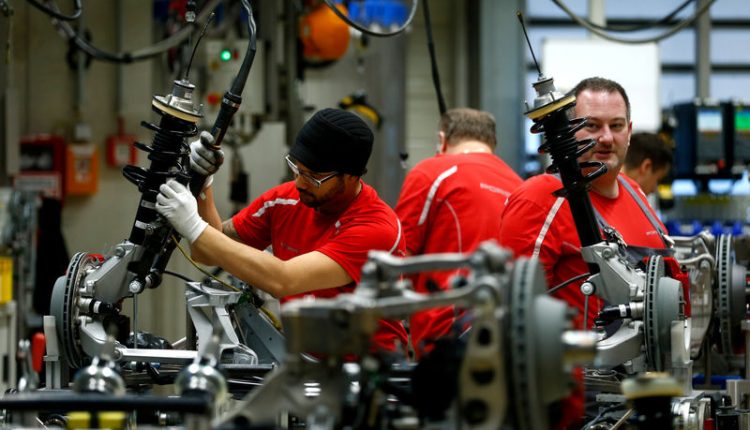A weakness in the activity of the German private sector retreated slightly in November, but overall business activity remained subdued, a business survey showed on Friday.
Germany’s flash composite output index came in at 49.2 in November, compared to a final estimate of 48.9 in October, IHS Markit’s purchasing managers’ index (PMI) data showed.
While November’s preliminary estimate marked the highest reading since three months, it was still one of the weakest levels observed over the past six years and a half.
“Beneath the subdued headline numbers the data show another slight convergence between the more domestically-focussed service sector and export-led manufacturing,” IHS Markit’s principal economist Phil Smith said.
The headline IHS Markit flash Germany manufacturing PMI recorded 43.8 in November, improving from a reading of 42.1 in the previous month.
Moreover, the flash services PMI came in at 51.3, inching down from the preceding month’s final estimate of 51.6.
Manufacturing sector remained an area of weakness in November, but an overall output slump slowed down.
In the services sector, business expansion remained limited, with the output growth pace was the weakest since September 2016.
“While still showing a degree of resilience, the service sector is growing only modestly and at its slowest rate for over three years,” Smith added.
Business activity was pulled down in November by the fifth monthly decline in total new orders, with both sectors pointing to a lower demand.
For the first time since six years, private sector employment recorded no actual change, as hiring among services businesses was still solid enough to offset layoffs at factories, even it was easing.
“A lack of employment growth remains a worry, but the survey data do at least point to support to consumer spending from low inflation and rising wages,” Smith noted.
Business confidence improved in November, even it was low, judging by historical standards.
By 8:57 am GMT, the EUR/USD pair rose by 0.14% to $1.1074.


